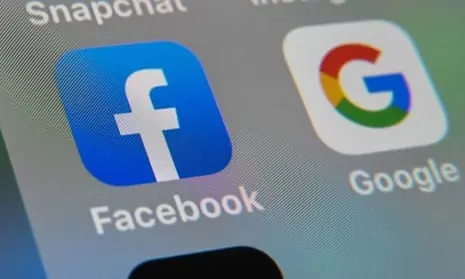
Facebook users urged to check their bank account after 1,200,000,000 users' data is stolen in historic breach
According to reports, a hacker operating under the alias “ByteBreaker” has surfaced on the dark web, claiming responsibility for infiltrating Facebook’s systems. The cybercriminal alleges that they exploited Facebook’s Application Programming Interface (API) to extract sensitive details from an enormous number of accounts—potentially over one billion.
The stolen information reportedly includes names, email addresses, phone numbers, birthdays, and even location data. On their own, these details may seem harmless, but in combination, they create a goldmine for identity theft and financial fraud.

Why This Matters for Everyday Users
Cybersecurity specialists warn that stolen personal data is often weaponized in troubling ways. Criminals can allegedly use it to:
- Apply for new credit cards in someone else’s name
- Gain access to existing bank accounts
- Execute phishing attacks and identity scams
- Target victims with highly convincing social engineering schemes
This is why experts are sounding the alarm, urging Facebook users to immediately:
- Change their account password
- Enable two-factor authentication
- Freeze or monitor credit reports
- Activate fraud alerts with banks and financial providers
The advice comes amid rising global cyber threats. Just last week, one of the largest cryptocurrency exchanges reported a devastating breach that may cost up to $400 million, showing how even the most fortified systems can fall prey to sophisticated attacks.
Meta Pushes Back Against Claims
Despite the widespread concern, Meta, Facebook’s parent company, is pushing back against ByteBreaker’s assertions. In a public statement, the tech giant claimed that the data sample provided by the hacker originates from an older breach dating back to 2021—an incident that had already been disclosed years earlier.
“This is from 2021, so it’s not a new claim,” Meta explained. “We disclosed this years ago and have since implemented new safeguards to prevent similar issues.”
Skeptics have also pointed out inconsistencies in the hacker’s story. For example, ByteBreaker alleged that the stolen data was stored in 200 million rows on Facebook’s systems. With over a billion affected accounts, cybersecurity experts argue that the number of database rows would likely be far higher, raising questions about the credibility of the claims.

Proof or Bluff?
To back up their allegations, ByteBreaker has released a 100,000-user sample of the data as evidence of authenticity. Still, security researchers remain divided: is this truly a fresh breach of unimaginable scale, or a repackaged dataset from an older leak being marketed as new?
Regardless of whether the breach is genuine or exaggerated, experts agree on one point: the risk to users remains real. Even recycled data can still be abused by cybercriminals who prey on the fact that many people reuse old passwords or fail to update their security settings.
The Bigger Lesson: Stay Vigilant
Whether or not this turns out to be the largest hack in history, the incident underscores a harsh reality—no platform is invulnerable. Centralized databases remain irresistible targets for hackers, and the personal information we willingly hand over to social networks is a perpetual treasure trove for those with malicious intent.
For now, Facebook users are strongly encouraged to act as though the breach is real. Taking a few simple precautions today could prevent devastating financial and personal consequences tomorrow.
News in the same category


PlayStation handing out rare refunds to gamers over popular new game

These three iconic iPhones set to become obsolete this month making them unable to update again

Elon Musk sparks debate with terrifying prediction about robots people claim will turn into 'nightmare'

Stephen Hawking Predicts the End of the World Is Nearer Than We Think

Why expert believes Princess Diana could have survived her 'incredibly rare' fatal injury

A Wearable Kidney May Finally Free Patients From Hospital Dialysis and Restore Real Independence

Man who's been walking non-stop for 27 years was banned from entering Russia

Husband of woman caught on kiss cam with CEO speaks out for first time since viral incident

Samsung blasts Apple's new iPhone with brutal posts just minutes after launch
Samsung wasted no time trolling Apple, firing off cheeky social media posts just minutes after the iPhone 17 reveal. The playful jabs have reignited the fierce rivalry between the two tech giants and sparked heated debates among fans worldwide.

Police release shocking new photos of ‘grim’ second campsite where father hid children after vanishing four years ago
Police in New Zealand have released haunting new photos of a hidden campsite where fugitive father Tom Phillips kept his three children while on the run for more than four years. The shocking discovery came just a day after Phillips was k:illed in a viole

Hacker with over 30 years experience shares the scariest things he’s seen on the dark web
Despite the bleak outlook, the hacker emphasized one hopeful trend: more former black hats like himself are turning to legitimate cybersecurity roles,

Keanu Reeves Revealed He’s Been ‘Married’ To Winona Ryder For Almost 30 Years
Keanu Reeves has stunned fans by revealing that he and Winona Ryder may have been “married” for nearly three decades—thanks to an unusual movie scene filmed in the early ’90s. What began as a role in Bram Stoker’s Dracula has turned into one of

Woman charges her husband $600 a month if he doesn't do his household chores

Trump uses shocking AI image to threaten US city with 'war'
Donald Trump has ignited outrage after posting an AI-generated image that depicts him declaring “war” on Chicago. The dramatic post, styled after Apocalypse Now, has triggered fierce backlash from state leaders and raised alarms about his political ta

Blind For 20 Years, Man Regains Sight Through His Tooth In Miracle Surgery
After two decades of darkness, a Canadian man can finally see the world again—through a groundbreaking surgery that uses his own tooth to restore vision. His emotional journey from blindness to sight has stunned both doctors and the public alike.

‘Folded Boy’ Miraculously Stands Tall After Years Living With 180° Spine Bend
For over a decade, a young man in China lived with his body bent nearly in half, trapped in a painful “Z-shaped” posture that made everyday life a struggle. Now, after years of suffering and a series of groundbreaking surgeries, he has finally stood u

Man who built $20,000,000 White House replica on top of skyscraper might never get to live in it
A jaw-dropping $20 million replica of the White House, perched atop a 400-foot skyscraper in India, has been gathering dust for years. Despite its grandeur and eccentric design, the palatial home’s creator, tycoon Vijay Mallya, may never get the chance
News Post

"The best plant for eyesight 👀 and much more… See more in the first comment."

The Spiritual Meaning of Black Butterflies Entering Your Home Revealed
Black butterflies carry meanings that are as complex as they are beautiful.

Add This Simple Ingredient to Your Mop Water and Keep Floors Shiny for Weeks
You don’t need fancy, high-priced cleaners to enjoy spotless, long-lasting results.

The Secret Use of the Tiny Hole in a Safety Pin Finally Revealed
That tiny hole in a safety pin is more than just decoration—it’s a brilliant example of how even the simplest tools can hold hidden design secrets. W

Bridal Glow Secret: One Glass of This Juice Daily Transforms Your Skin
This natural elixir is packed with antioxidants, anti-inflammatory compounds, and essential vitamins that work together to promote healthy, glowing skin.

Fenugreek & Onion: Thin To Thick Hair Naturally

Discover Garden Gold: Dandelion’s Hidden Power

DIY Anti-Aging Cream: Erase Wrinkles and Fine Lines Naturally at Home
By using natural ingredients like rice, honey, coconut oil, and aloe vera, you can create effective anti-aging creams that nourish, hydrate, and rejuvenate your skin.

The Black Serum To Get Long, Black Hair

Soak orange and grapefruit peels in vinegar to get a special type of water that can save you a lot of money.

Don't soak frozen meat in water. Listen to the chef's instructions on how to defrost it in 5 minutes and the meat will still be delicious.

Unbelievable amount Trump’s net worth has risen since taking office for second term

The Power of Chanca Piedra: 10 Benefits and Uses

Weight Loss Drink: Consume These 2 Detox Drinks To Lose Weight

Symptoms That Can Be Caused by Stress

What the Shape of Your Legs Might Say About Your Personality

How surgeon who amputated his own legs was caught as he's sentenced to 32 months in prison

PlayStation handing out rare refunds to gamers over popular new game

🌿 17 Health Conditions That May Benefit from Guava Leaf Tea + Easy Homemade Recipe
